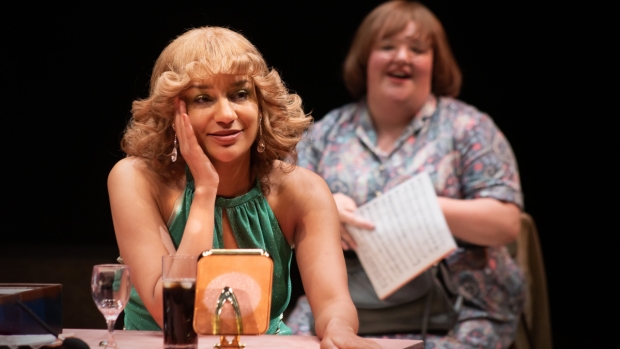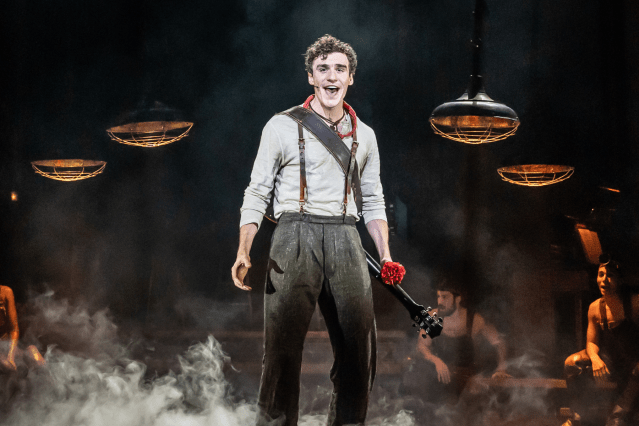
© Chris Saunders
Back in 1978 Sheffield Crucible took a gamble on a remarkable young talent who up till then had mainly made her mark on television and comedy shows. She gave them full value, writing the script and six songs, taking one of the leading roles and playing the piano stage-side. The writer/actor/pianist was the irreplaceable Victoria Wood and the play was Talent.
Forty-three years later the play is well worth reviving, but the Sheffield Crucible production hardly has the same impact. The acute observational comedy, lightly conversational over a bed of wry sadness, is there; so, too, are the gift for the unlikely phrase that somehow is just what we really thought and the ability to concoct songs that blend pastiche with a completely original style. Of course, we are no longer surprised by this and, good as Talent is, Wood did it all even more sharply later.
However, the main element blunting the impact of what is still a disarmingly appealing 90 minutes of theatre is the choice of auditorium. Talent was written for the Crucible Studio and is suited to an intimate performance style and space. Julie enters a talent contest at Bunters, a cabaret club of no great repute, and her friend Maureen comes along for company. Their encounters with men are relatively predictable: the ex-boy friend, Mel, who abandoned a pregnant teenage Julie and now plays in the backing trio, an ageing Lancastrian double-act of comedy magician and his inept stand-in assistant and a smooth compere who promises to make Julie a star if she'll have sex with him. And nothing much happens.
Victoria Wood told us what the play is all about: she was fascinated, she said, by young women's relationships, between those considered "sparky" and "plain". In Talent the main focus is on this acutely observed relationship – it's 30 minutes before another character enters – and it's best to eavesdrop on it rather than observe from a distance.
At the start a white-suited pianist sits at a white grand piano atop a mighty structure while a lounge singer sings in praise of Julie on a gold draped stage. When the drapes are swept away to reveal a scruffy dressing room, it's a neat contrast between imagined glamour and seedy reality, but it also suggests the unsuitability of the vast Crucible stage for such a small-scale play.
James Quinn (George) and Richard Cant (Arthur) do a nice job on their music-hall song, Pals, and George's musical demands to an uncomprehending and uninterested Mel (Jonathan Ojinnaka) ring comically true, while Daniel Crossley's Compere is as slimy as you could wish, but the play is all about the relationship between Julie and Maureen and between dreams and reality. Lucie Shorthouse captures Julie's mix of brashness and uncertainty perfectly, but it's Jamie-Rose Monk (Maureen) who makes the bigger impact despite – devotedly, slyly – taking the apparently secondary role. After all Victoria Wood, self-effacing as she claimed to be, gave herself the best songs – and Monk delivers!
Director Paul Foster, with a great track record on large-scale musicals, finally has the chance to bring a touch of Broadway pizazz to the finale when Wood throws in a Sondheim pastiche just because she could.












